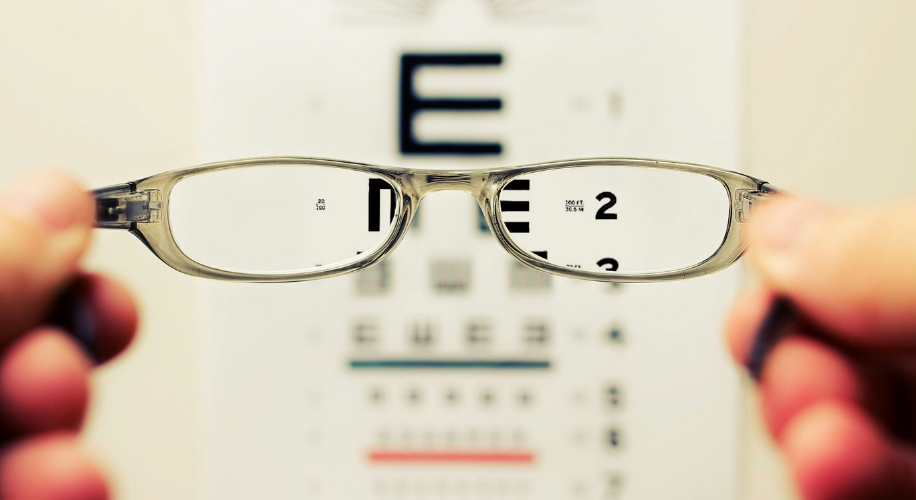How Often Should You Get an Eye Exam? Complete Guide by Age
Your vision isn’t static—it changes throughout your life in ways you might not even notice. That’s why regular eye exams matter so much. They’re not just about updating your prescription (though that’s important). They’re about catching problems early, protecting your long-term vision, and making sure you’re always seeing your best.
At Zenni Optical, we believe smart vision care starts with knowing when to schedule your next exam. To help, we’ve compiled this comprehensive guide, based on recommendations from the American Optometric Association (AOA) and the Canadian Association of Optometrists (CAO), along with insights into how vision changes with age.

Infants & Children (Birth–12 years)
Healthy vision starts early. The AOA and CAO recommend:
First exam: Between 6 and 12 months old
Preschool checkup: At least once between ages 2 and 5
School-age: Annual comprehensive eye exams starting before first grade and continuing every year through childhood

Why Annual Exams Matter for Kids
Children’s eyes develop rapidly, and their vision can shift significantly from one year to the next. Even if your child passes a school screening, those basic tests often miss early signs of nearsightedness, eye coordination issues, or focusing problems that can affect learning.
Kids who wear glasses typically need prescription updates every year, especially during growth spurts. Regular eye exams ensure they’re seeing clearly—at home, in the classroom, and at play.
Teens (13–19 years)
Teens face new visual demands—more screen time, late-night studying, and often contact lenses. That’s why annual comprehensive eye exams remain important.
Even though vision changes slow down after childhood, prescriptions can still shift through the teen years. Regular checkups also help identify eye strain, dryness, and digital fatigue—all of which are increasingly common in today’s screen-heavy lifestyles.
If your teen wears contacts, yearly exams are essential to ensure the lenses fit properly and eyes stay healthy. Establishing consistent eye care habits now sets them up for a lifetime of good vision.

Adults (20–64 years)
Once you reach adulthood, your eyes may feel more stable—but that doesn’t mean exams can wait. Think of them as routine maintenance for your vision.
Ages 20–39
Schedule a comprehensive eye exam every 1–2 years, or yearly if you wear glasses or contacts, spend long hours on screens, or have a family history of eye disease. Regular exams help detect early signs of eye strain or subtle prescription changes that can sneak up over time.

Ages 40–64
Plan for an eye exam at least every two years, or more often if you have conditions like diabetes, high blood pressure, or strong prescriptions. Around your mid-40s, many people experience presbyopia—a natural, age-related change that makes it harder to focus on close objects. Reading glasses, bifocals, or progressives can help restore clarity.
By your 60s, most prescriptions stabilize, but the risk of glaucoma, cataracts, and other eye diseases increases. Consistent exams are the best way to keep your eyes healthy and your vision sharp.
Once your prescription is up to date, finding the perfect pair of glasses is easy. Explore Zenni’s complete collection of frames and use our Virtual Try-On tool to find the styles that suit you best.
Seniors (65 years and older)
For seniors, annual eye exams are essential—even if your glasses feel just fine.
Why Yearly Exams Matter
After the age of 65, the risk of age-related eye conditions, such as cataracts, glaucoma, and macular degeneration, increases. These often develop gradually and without noticeable symptoms at first. Yearly exams allow your optometrist to detect issues early, when treatment is most effective.

Prescription Changes in Older Adults
After about age 60, most people’s distance prescriptions stabilize. However, factors such as cataracts, diabetes, or previous eye surgery can still cause shifts in vision. Some people notice slight changes in sharpness or brightness that may require a lens update.
Even if your prescription hasn’t changed, annual checkups help ensure your lenses provide clear, safe vision for everyday activities—whether you’re driving, reading, or enjoying time outdoors.
Why Regular Eye Exams Matter
Think of your exam schedule as preventive care for your eyes—just like seeing the dentist or your doctor for checkups. Vision changes can be subtle and easy to miss, so regular exams keep your eyes and overall health in check.
Routine eye exams can:
- Keep your prescription current for maximum comfort and clarity
- Detect eye diseases early, when treatment is most effective
- Reveal other health concerns, such as diabetes or high blood pressure
- Prevent learning difficulties caused by undiagnosed vision problems in kids
- Reduce digital eye strain through updated prescriptions and expert advice
By following a consistent exam schedule for your age and health needs, you’re not just protecting your eyesight—you’re supporting your overall well-being.
See Your Best at Every Age with Zenni Optical
At Zenni Optical, we make it easy to care for your eyes at every stage of life. From your child’s first pair of glasses to progressive lenses for presbyopia, and photochromic lenses that adapt to changing light, we offer eyewear designed for real life.
After your next exam:
Clear, comfortable vision starts with consistent care—and Zenni is here to help you every step of the way.
Quick Reference: Eye Exam Schedule
| Age Group | Recommended Frequency |
| 0–12 years | First exa . Some clinicians have seen rapid vision changes within a single year, so extra checkups can be valuable during this period. |
| 13–19 years | Annual exams |
| 20–39 years | Every 1–2 years (annually if you wear corrective lenses or have risk factors) |
| 40–64 years | At least every 2 years (watch for presbyopia symptoms) |
| 65+ years | Annual comprehensive exams |
These are general guidelines. Your eye care professional may recommend more frequent visits based on your individual vision and health needs.
Frequently Asked Questions
Do I need an exam if my vision feels fine?
Yes. Many serious eye conditions, such as glaucoma and macular degeneration, develop gradually without noticeable symptoms in their early stages. Regular exams detect these issues before they cause permanent vision loss. Additionally, eye exams can reveal other health problems like diabetes and high blood pressure that show signs in your eyes before you feel symptoms elsewhere.
What’s the difference between a vision screening and a comprehensive eye exam?
Vision screenings (like those at school or the DMV) are quick tests that check if you can see clearly at a distance. They help identify obvious vision problems, but they miss many issues. A comprehensive eye exam is much more thorough—it evaluates eye health, checks for diseases, tests how well your eyes work together, measures eye pressure, and examines the internal structures of your eyes. Only a comprehensive exam provides a complete picture of your vision and eye health.
How long does a typical eye exam take?
Most comprehensive eye exams take 30–60 minutes, depending on the complexity of your vision needs and whether your eyes require dilation. If it’s your first visit with a new optometrist or you have specific concerns to address, the appointment might take a bit longer. The time investment is worth it for protecting your vision and overall health.
How often do children’s prescriptions change?
Children’s prescriptions often change more frequently than those of adults because their eyes are still developing. It’s common for kids to need a new prescription every year, especially during growth spurts in elementary school. This is why annual exams are so important—even small vision changes can affect learning and development.
When should I schedule my next eye exam?
If you’re due for an exam based on the guidelines above, schedule it soon. If you experience sudden changes in vision, eye pain, flashes of light, or an increase in floaters, contact an eye care professional immediately—don’t wait for your regular appointment. For routine care, book your next exam before leaving your current one to ensure you stay on schedule.
Can I use my Zenni glasses prescription from an online exam?
Zenni accepts valid prescriptions from licensed eye care professionals. While online vision tests can be convenient for prescription renewals in certain situations, they don’t replace comprehensive in-person eye exams, which are essential for detecting eye diseases and overall health issues. Always follow the exam frequency guidelines for your age group to ensure complete eye health monitoring.




 Canada
Canada